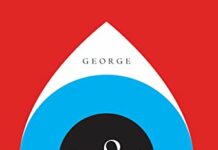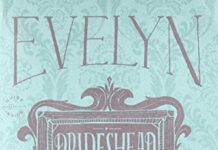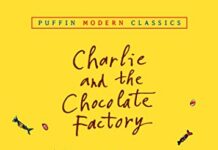
Ebook Info
- Published: 2003
- Number of pages: 880 pages
- Format: Epub
- File Size: 0.80 MB
- Authors: George Eliot
Description
George Eliot’s Victorian masterpiece: a magnificent portrait of a provincial town and its inhabitants
George Eliot’s novel, Middlemarch: A Study of Provincial Life, explores a fictional nineteenth-century Midlands town in the midst of modern changes. The proposed Reform Bill promises political change; the building of railroads alters both the physical and cultural landscape; new scientific approaches to medicine incite public division; and scandal lurks behind respectability. The quiet drama of ordinary lives and flawed choices are played out in the complexly portrayed central characters of the novel—the idealistic Dorothea Brooke; the ambitious Dr. Lydgate; the spendthrift Fred Vincy; and the steadfast Mary Garth. The appearance of two outsiders further disrupts the town’s equilibrium—Will Ladislaw, the spirited nephew of Dorothea’s husband, the Rev. Edward Casaubon, and the sinister John Raffles, who threatens to expose the hidden past of one of the town’s elite. Middlemarch displays George Eliot’s clear-eyed yet humane understanding of characters caught up in the mysterious unfolding of self-knowledge. This Penguin Classics edition uses the second edition of 1874 and features an introduction and notes by Eliot-biographer Rosemary Ashton. In her introduction, Ashton discusses themes of social change in Middlemarch, and examines the novel as an imaginative embodiment of Eliot’s humanist beliefs.
For more than sixty-five years, Penguin has been the leading publisher of classic literature in the English-speaking world. With more than 1,500 titles, Penguin Classics represents a global bookshelf of the best works throughout history and across genres and disciplines. Readers trust the series to provide authoritative texts enhanced by introductions and notes by distinguished scholars and contemporary authors, as well as up-to-date translations by award-winning translators.
User’s Reviews
Review “One of the few English novels written for grown-up people” — Virginia Woolf”The most profound, wise and absorbing of English novels…and, above all, truthful and forgiving about human behavior.” — Hermione Lee
Reviews from Amazon users, collected at the time the book is getting published on UniedVRG. It can be related to shiping or paper quality instead of the book content:
⭐ I read The Mill on the Floss by George Eliot when I was about 17 years old. I remember the experience because I almost literally could not put the book down. I read for 14 hours straight until I finished the book. I even remember cooking pork chops with one hand while holding the book in the other hand so that I could read while I cooked. I cannot tell you now what the book was about (that was almost 40 years ago), just that I loved it and devoured it, along with the pork chops:-). After reading Middlemarch, I plan to reread The Mill on the Floss and read all her other novels as well.I loved Middlemarch, but I didn’t devour it. I chewed it slowly – the writing too beautiful to swallow whole. It grabbed me right from the start and I knew I was in for a sublime reading experience.In many of the reviews I have read people have mentioned that Eliot’s narrative voice was not to their liking, finding it too didactic or distracting. I found her narrative to be one of the things I liked best. It was through this technique that most of the wisdom and life lessons were imparted. The narrative became another character for me, seamlessly blended with the rest of the characters.“We mortals, men and women, devour many a disappointment between breakfast and dinner-time; keep back the tears and look a little pale about the lips, and in answer to inquiries say, “Oh, nothing!” Pride helps us; and pride is not a bad thing when it only urges us to hide our own hurts–not to hurt others.”Her ability to sum up a character in one beautifully written paragraph is remarkable.In describing Mr. Casaubon, one of the main characters, Eliot writes. “It is an uneasy lot at best, to be what we call highly taught and yet not to enjoy: to be present at this great spectacle of life and never to be liberated from a small hungry shivering self– never to be fully possessed by the glory we behold, never to have our consciousness rapturously transformed into the vividness of a thought, the ardor of a passion, the energy of an action, but always to be scholarly and uninspired, ambitious and timid, scrupulous and dim-sighted.”In talking about another character, Dr. Lydgate, she says. “Only those who know the supremacy of the intellectual life– the life which has a seed of ennobling thought and purpose within it– can understand the grief of one who falls from that serene activity into the absorbing soul- wasting struggle with worldly annoyances.”Her dry wit and humor are scattered throughout the book like sparkling gems.“Miserliness is a capital quality to run in families; it’s the safe side for madness to dip on”.”He has got no good red blood in his body,” said Sir James. “No. Somebody put a drop under a magnifying-glass and it was all semicolons and parentheses,” said Mrs. Cadwallader.”Oh, tallish, dark, clever–talks well–rather a prig, I think.” “I never can make out what you mean by a prig,” said Rosamond. “A fellow who wants to show that he has opinions.” “Why, my dear, doctors must have opinions,” said Mrs. Vincy. “What are they there for else?” “Yes, mother, the opinions they are paid for. But a prig is a fellow who is always making you a present of his opinions.”“But Duty has a trick of behaving unexpectedly–something like a heavy friend whom we have amiably asked to visit us, and who breaks his leg within our gates.”Eliot is sympathetic to her characters, showing the good and bad in all, even the characters who would be despised if written by most authors. There is no black and white here, and yet the story is still compelling without the devise of writing purely lovable or despicable characters. We are shown what motivates the most hateful figures as well as those we are drawn to, and as a result there is no one in this book with whom you cannot empathize in some way. Her writing is infused with penetrating insights into human nature without ever losing compassion and understanding for their frailties. This empathy for her characters, perhaps more than anything else, differentiates her writing from Dickens and Austen.I now look forward to reading all her other novels, starting with her first one, Adam Bede. It should be interesting to see her progression from first novel to last. I had very few preconceived notions about Middlemarch before I read it and maybe that helped me to enjoy it all the more, but enjoy it I certainly did!
⭐ January 16, my birthday, I started Middlemarch by George Eliot (1871), a book I have wanted to read for fifty years. I finished it today, July 3.Set in the fictitious Midlands town of Middlemarch during 1829–32, and widely considered the greatest of Victorian novels, this mighty workhas often been compared to Tolstoy’s War and Peace due to it’s immense cast, and it’s historical precision. Additionally, however, it reminds me of Henry James’s The Portrait of a Lady (1880) due to it’s depth of psychological analysis of human nature in all its rhythms and shades. Some have called Middlemarch a novel without a hero, but in the end it is the town of Middlemarch itself, with all its dizzying array of foibles and follies, loves and slanders, gossip and redemption, tragedy and laughter, wealth and poverty, that fills the role. The author never ridicules, never mocks, but simply loves her people, every one, and after spending six months with them I will miss every one, even the monsters, but especially the disappointed.Halfway through I discovered that Edward VII (1841-1910), Queen Victoria’s eldest son, read Middlemarch annually from it’s publication until his death, thirty-six years later. I can see why. Spanning eight books, and nearly a thousand ages, the author never falters.A sample:“Men outlive their love, but they don’t outlive the consequences of their recklessness.”Every limit is a beginning as well as an ending. Who can quit young lives after being long in company with them, and not desire to know what befell them in their after-years? For the fragment of a life, however typical, is not the sample of an even web: promises may not be kept, and an ardent outset may be followed by declension; latent powers may find their long-waited opportunity; a past error may urge a grand retrieval. Marriage, which has been the bourne of so many narratives, is still a great beginning, as it was to Adam and Eve, who kept their honeymoon in Eden, but had their first little one among the thorns and thistles of the wilderness. It is still the beginning of the home epic–the gradual conquest or irremediable loss of that complete union which makes the advancing years a climax, and age the harvest of sweet memories in common. Some set out, like Crusaders of old, with a glorious equipment of hope and enthusiasm and get broken by the way, wanting patience with each other and the world.”And, finally, the last and most famous line in the book, “…for the growing good of the world is partly dependent on un-historic acts; and that things are not so ill with you and me as they might have been, is half owing to the number who lived faithfully a hidden life, and rest in un-visited tombs.”
⭐ To give a masterpiece of world literature, which is what Middlemarch is, only five stars is to fail to acknowledge its greatness. Yes, it’s a bit slow in the beginning; yes, it’s long and written in a leisurely pace; yes, it’s written in the English style of the 19th century, which is a far cry from modern prose. But in depth and precision of characterization, in its ability to penetrate to the core of human experience, and in its creation of a picture of an entire wold, there are few, if any books, that can match it. It is, indeed–as Virginia Wolf said–a novel for adults. Many others have pointed out the particular beauties and wisdom of the novel better than I can, so let me point out a particular feature that Amazon offers that I have used. If you buy the Kindle version of this Oxford edition of Middlemarch you can, for an extra few dollars, also get the Audible version read by Juliet Stevenson. (The Audible version on its own is $55.) Also, the two versions sync together, so you can read a few chapters, and then switch over on your IPad or iPhone to Stevenson’s reading, and then switch back whenever you wish. Stevenson’s reading is legendary for a reason: she brings the book alive in a very powerful way, and is marvelous at communicating its meanings. I learned a lot from listening to her–especially in revealing the humor in the book, which I missed in my own reading. But I also wanted to read on my own as well. Amazon had made this now possible at a very reasonable price, and I heartily recommend it.
⭐ It’s as if a bad typist copied text and got it badly wrong. Way too many errors. I am comparing it to the Signet Classic edition, and this e-book contains textual, grammatical, and typographical errors ON EVERY PAGE! The only reason I purchased it was to be able to increase text size to facilitate reading. I will be requesting a refund.Amazon, you must remove this forthwith.
⭐ I suspect few readers today approach these types of books. Long convoluted sentences and paragraphs that require careful reading to elicit meaning would put off many modern ( or reluctant) readers. I myself, not having read an older text for some time, struggled at times to get iinto the groove of the narrative style. But it was worth the persistence and I am so glad that I have, at last, read this wondrous story, claimed by many to be the best novel ever written. Insightful, perceptive, full of modern psychological observations and a fine and restrained awareness of the inner hearts and lives of a variety of both men and women. There is not one single unbelievable scene, character or idea contained in this text. Such marvellous powers of observation combined with the writing skil to deliver a jewel in the crown of English literature.
⭐ George Eliot’s ‘Middlemarch’ is an epic tale about people, mostly middle and upper class, set in rural England during the 1800’s. The characters are complicated and evolving and, like the town, fictitious.Eliot, tells the story from many points of view, allowing her to get inside many heads. In doing so, she proves herself to be not only a wonderful storyteller, but a gifted psychologist with an understanding of both sexes.The main character, Dorothea, is outspoken, strong-willed and trusting, but on a path she has set to becoming molded and compliant. She marries an older man of the church, a supposed great scholar, a man of superior intellect she looks up to, but who reveals himself to be controlling. His pomposity camouflages self-doubt and insecurity. Through Eliot’s insightful character studies, we feel for these characters, sympathizing with their imperfections; Casaubon a jealous old fraud, helpless and insecure; she, young, strong, faithful, more clever than he. Eliot brings us the inner workings of Casaubon’s mind and his torments, not only that he might not finish his life’s written work, but maybe after his death, Dorothea might marry the man he despises, a man who is young, dynamic and good looking. He has observed a growing attraction between them, and this for him is intolerable. While Casaubon smolders, he thinks that even after premature death, if it should occur, he will find a way of controlling her, and punishing her.‘There was no denying that Dorothea was as virtuous and lovely a young lady as he could have obtained for a wife; but the young lady turned out to be something more troublesome than he had conceived. She nursed him, she read to him, she anticipated his wants, and was solicitous about his feelings; but there had entered into the husband’s mind the certainty that she judged him, and that her wifely devotedness was like a penitential expiation of unbelieving thoughts—was accompanied with a power of comparison by which himself and his doings were seen too luminously as a part of things in general…Poor Mr. Casaubon! This suffering was the harder to bear because it seemed like a betrayal: the young creature who had worshipped him with perfect trust had quickly turned into the critical wife; a remark from her which he had not in any way anticipated was an assertion of conscious superiority; her gentle answers had an irritating cautiousness in them; and when she acquiesced it was a self-approved effort of forbearance.’Casaubon ponders his own mortality:‘To Mr. Casaubon now, it was as if he suddenly found himself on the dark river-brink and heard the plash of the oncoming oar, not discerning the forms, but expecting the summons.’Characters develop beautifully – their arcs moving throughout the book. I especially like the beautiful Rosemond and Dr. Tersia Lydgate, a good-looking, young surgeon, a couple that fall blindly in love. What could possibly go wrong? Their love will see them through won’t it! But then again character flaws, come into play causing readers to become more curious and invested.‘Poor Lydgate! or shall I say, Poor Rosamond! Each lived in a world of which the other knew nothing…But Rosamond had registered every look and word, and estimated them as the opening incidents of a preconceived romance—incidents which gather value from the foreseen development … If we had a keen vision and feeling of all ordinary human life, it would be like hearing the grass grow and the squirrel’s heartbeat, and we should die of that roar which lies on the other side of silence. As it is, the quickest of us walk about well wadded with stupidity.’Other figures are complicated and conflicted too, adding to the richness and suspense. This is not chick lit. It’s the work of genius. The plot is intricate, weaving, twisting and turning in unexpected directions. How could life in rural, Victorian England be so complicated! But like Forster’s ‘Howards End’, Austin’s ‘Pride and Prejudice’, Hardy’s ‘Far from the Madding Crowd’, life can be a challenge! And no, it’s not fair.The actions of the characters revolve around love mostly, as well as ambition, deceit, greed, possessiveness, selfishness, fall from grace, and of course, money and death. Eliot peels back their skins and lays her characters bare, showing their inner weaknesses, their hopes and desires. At times, she pops in and talks to us directly, which I found antiquated, but nice.There are gems throughout Eliot’s writing, providing insight and worldly knowledge about life—a treat for authors. I often found myself thinking of situations in these modern times and saw similarities. Not much has changed and probably never will—given the nature of man.Through her descriptive prose, one gets the feel of the country, the rural, provincial way of life, life on the land and horses, cattle and corn. One can vividly imagine, the wrath and dissatisfaction among the locals at the coming of the railways, as land was commandeered all over the countryside for construction.Reading this, for me, was time well spent.
⭐ This is one of the best novels that I’ve come across recently. I was a bit intimidated when I repeatedlyheard it described as “grownup”. I often struggle with the classic women’s novels, and the socialintricacies can be hard to follow. But in this case I wasn’t rushed for once and tried to enjoy it,until around two-thirds of the way through, when it got a bit long. George Eliot was a woman writingunder a man’s name, and wrote in a style that should be appealing to both.The story centers around a number of marriages and other interrelationships in a fairly smalltown. It has been described as “grownup” because the characters are interested in serious things,like theology, business and medicine (remember that medicine was very different just a shorttime ago). They are psychologically deep, complex and realistic for any age. For instance, there’salways the mystery of figuring out the opposite sex, in the relationships between men and women.These classic novels by George Eliot and others give insight into the opposite sex even for today.They don’t necessarily describe all women, or all men, but give some tendencies that you mightfind in the behavior and psychology of some of them.The narration also provides penetrating insight on human motivation, nature and character. I’dlike to quote from the concluding reflection on just one of the fascinating characters.”There is no creature whose inward being is so strong that it is not greatly determined by whatlies outside it. A new Theresa will hardly have the opportunity of reforming a conventual life,any more than a new Antigone will spend her heroic piety in daring all for the sake of a brother’sburial: the medium in which their ardent deeds took shape is forever gone. But we insignificantpeople with our daily words and acts are preparing the lives of many Dorotheas, some of whichmay present a far sadder sacrifice than that of the Dorothea whose story we know.The growing good of the world is partly dependent on unhistoric acts; and that things are notso ill with you and me as they might have been, is half owing to the number who lived beautifullya hidden life, and rest in unvisited tombs”.Readers may also be interested in Gertrude Himmelfarb’s study of George Eliot and herrelationship to Judaism.
⭐ If you like stories about personal relationships and neighborhoods and how life happens from people’s thinking and actions, you will love this. Just normal life in an English village. And the ripple effect of people’s actions and how they impact others. I cannot get over the command of the English language “George Elliott “ had!! I’m looking up words in this novel frequently. She was SO intelligent. Much more than most of us are today. Wonder if we’re declining in our use of English. If you read this book, you will think so!!!
⭐ In “Middlemarch,” George Eliot (Mary Ann Evans) examines life in the fictional Midlands town of “Middlemarch,” focusing on various characters and their intersecting narratives in order to examine women’s role in society, the place of religion, contemporary politics, and more. Eliot’s writing comments on the internalized misogyny of her time. In one instance, Mrs. Vincy says in conversation with Rosamond, “Oh, my dear, you must allow for young men. Be thankful if they have good hearts. A woman must lean to put up with little things. You will be married some day” (pg. 105). This view of marriage runs through most of the book, with both Dorothea and Lydgate experiencing failed marriages. Eliot continues, “[Mrs. Garth] was not without her criticism of [her neighbors] in return, being more accurately instructed than most matrons in Middlemarch, and… apt to be a little severe towards her own sex, which in her opinion was framed to be entirely subordinate. On the other hand, she was disproportionately indulgent towards the failings of men, and was often heard to say that these were natural” (pg. 262).In discussing the role of art, Will Ladislaw and Dorothea Casaubon debate the work of Tamburlaine, which Will argues represents “earthquakes and volcanoes” as well as “migrations of races and clearings of forests – and America and the stream-engine” (pg. 231). Change runs as a through-line in the book, specifically the Reform Act of 1867, which doubled the adult male enfranchisement rate in England and Wales. Eliot begins hinting at this as she discusses the role of politics in rural life (chapter 18). Further discussions of art include references to significant authors of the day, including Sir Walter Scott, Lady Blessington, and L.E.L. (Letitia Elizabeth Landon), the poet (pg. 291). While slow at times, Eliot’s commentary will be of interest to anyone studying the late-Victorian era.
⭐ A true classic, covering love, politics, society, responsibility and other major social elements of both the 19th and 21st centuries. However, as is typical in this genre of 19th century literature, the plot moves ponderously, as does character development. It was a true slog to finish, and with the exception of finding Dorothea to be a delight, the book left little memorable impression…which is sad. I’m jealous of the five star reviews because I didn’t extract the same joy for my 8 or so hours of reading.
Keywords
Free Download Middlemarch (Penguin Classics) in Epub format
Middlemarch (Penguin Classics) Epub Free Download
Download Middlemarch (Penguin Classics) 2003 Epub Free
Middlemarch (Penguin Classics) 2003 Epub Free Download
Download Middlemarch (Penguin Classics) Epub
Free Download Ebook Middlemarch (Penguin Classics)





